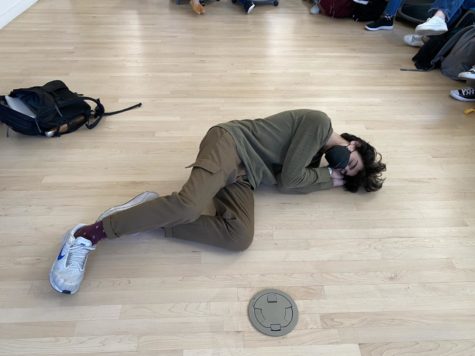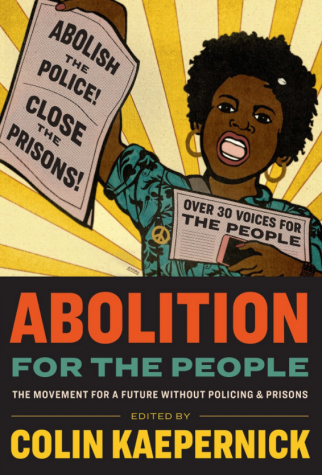Selective Religious Freedom in the Amy Coney Barrett Hearings
Smack-dab in the middle of Hon. Amy Coney Barrett’s Senate hearings over her nomination to the Supreme Court of the United States (SCOTUS), Rep. Ilhan Omar, one of the very few Muslim House representatives, tweeted: “Let’s be clear about this: if a Muslim woman was nominated to SCOTUS you would see Republicans lose their mind about her religious background… ‘Sharia law’ would be trending right now. Miss me with the pearl-clutching and all this righteous talk about religious freedom.”
And oh boy, did Rep. Omar hit the nail on the head.
Republicans love to invoke the phrase “religious freedom.” Really, they should get hats. It should be the new official slogan of the GOP because that’s been just about their only rebuttal to the Democrats’ points about Coney Barrett’s blatant encroachment on civil liberties. If a Democrat utters that the Supreme Court nominee will take away a woman’s right to choose (a liberty which the Religious Right famously hates), you bet that there’s a Republican ten feet behind ready to lambast said Democrat about Coney Barrett’s “religious freedom.” But it’s not religious freedom for all; it’s selective religious freedom.
Do Muslims get religious freedom? Absolutely not. Recall Trump’s Muslim Ban? Yeah, that. The party that is now crowing about “religious freedom” was also the one that was way too eager to uphold and act upon a disgusting and discriminatory policy against immigration from majority-Muslim countries. So no, Muslims don’t get religious freedom. In fact, Republicans smear their religion as inherently violent and hell-bent on overthrowing America. If Trump had nominated an equally religious Muslim woman, what would have happened? Well, actually, scrap that. That shouldn’t even be a question, because Trump would never nominate a Muslim. Why? Because he’s a raging Islamophobe.
Look, I don’t have a problem with religious freedom. I don’t have a problem with Coney Barrett’s Catholicism either. What I do have a problem with, however, is selective religious freedom that only applies to Christians. Anybody and everybody should have the same access to the same religious freedom. It is enshrined in the Constitution, after all.
Which brings me to my second point: the Constitution. Coney Barrett considers herself an originalist. Originalism is an approach to the Constitution in which legal scholars and judges apply what they claim to be the intent of the text’s Framers when evaluating a case. That is, they’ll look at the Second Amendment, for instance, and try to discern what the Founding Fathers were thinking when they wrote it. If you ask me, originalism is a bunch of hooey that has the benefit of asserting the Conservative view. Keep in mind that according to the Framers, enslaved people were only three-fifths of a human being, and women were never mentioned. So no, I don’t think that we should really be evaluating the Constitution based on what the Founding Fathers thought.
But let’s say that originalism is a valid form of jurisprudence (which it is most definitely not), and let’s talk about religion in the Constitution. If American Studies teaches us anything, it was that the Framers didn’t want Judeo-Christian morality anywhere near the Constitution. It was like, the singularly most important principle of the document. This evidently doesn’t matter to Senate Republicans, as they’ve nominated a religious zealot to the bench. Yes, I truly think that Amy Coney Barrett is a religious zealot. She belongs to a very small group of highly devout Evangelical Catholics called the People of Praise. This group’s beliefs include, but are not limited to: the opposition of abortion, gay rights, and marriage equality, and the leadership of men in marriages. The People of Praise are undoubtedly regressive, practicing a form of Catholicism that looks like it came from the nineteenth century. I don’t know about you, but I find that both troubling and indicative of a subtle fanaticism. Not exactly the person you want to decide what a woman can and can’t do with her own body or if gay couples have the right to get married.
I think piety is fine. I don’t understand it, sure, but it doesn’t concern me. Zealotry, on the other hand, concerns me greatly. When one is a religious zealot, as I adamantly believe Coney Barrett is, it’s impossible to separate religious beliefs and judicial beliefs. This lack of separation would have certainly enraged the Founding Fathers, as it seems to me to be an egregious example of the intersection between Judeo-Christian morality and the law. But the so-called “originalists” don’t care about that, do they? No, because the originalist method of thinking only comes into play when we’re talking about somebody’s almost-unhindered right to purchase an AR-15 rifle.
Republicans, your hypocrisy isn’t just off the charts, it’s in the stars. Besides holding a Republican president and a Democratic president to entirely different standards (yep, I’m talking about Merrick Garland), this religious freedom that you love so much isn’t true religious freedom. It’s selective, and it only applies to Christians. I imagine that would bother the Framers, wouldn’t you? Your argument is so filled with holes that a seventeen-year-old with no legal training can isolate its flaws. Unless, as Rep. Alexandra Ocasio-Cortez suggests, your invocation of religious freedom is simply a pretense to push through an ultra-conservative nominee at the eleventh hour: “When politicians use faith as an excuse to pass and uphold laws that seize control of people’s bodies but not guarantee them healthcare, feed the poor, shelter the homeless, or welcome the stranger, you have to wonder if it’s really about faith at all.”









